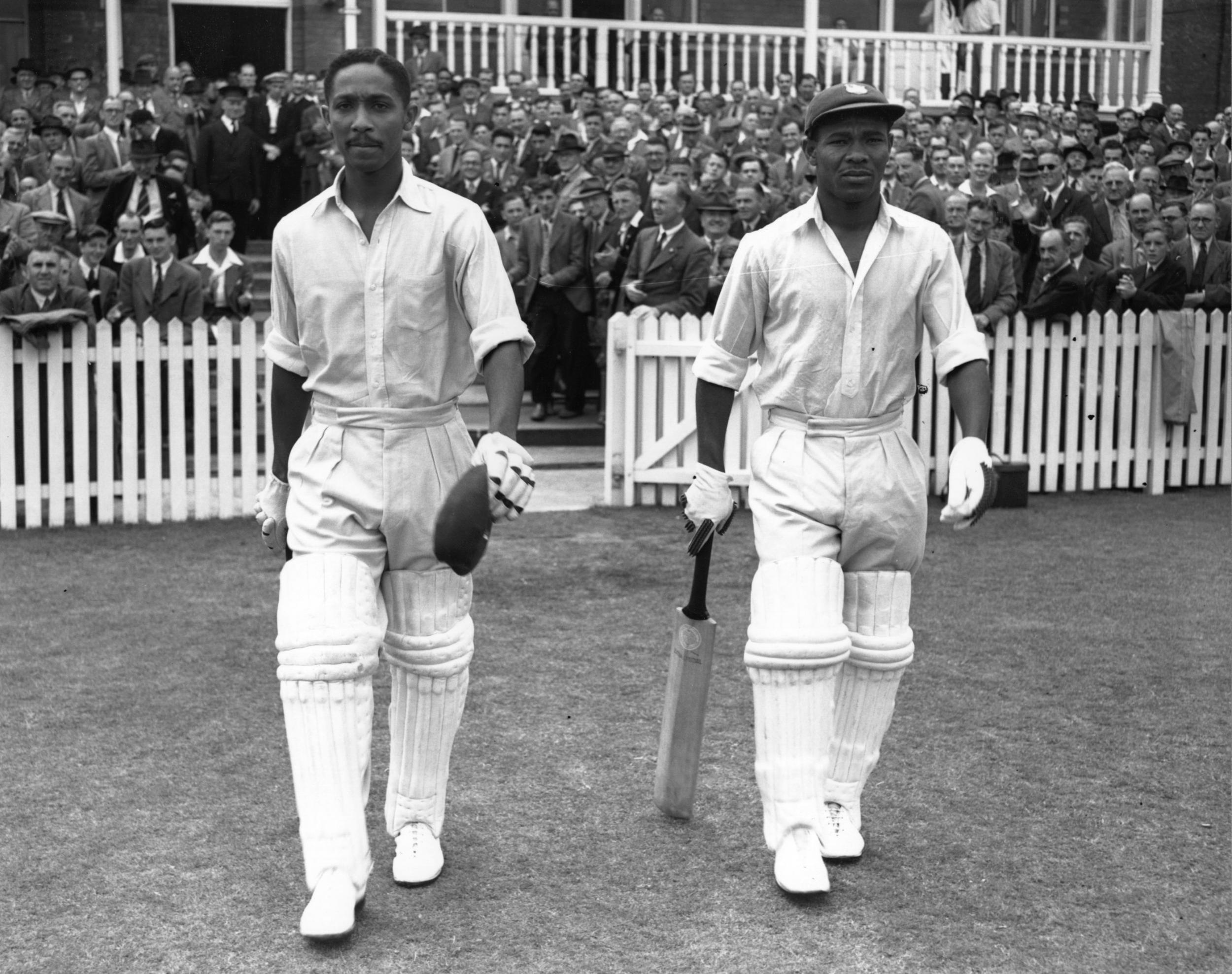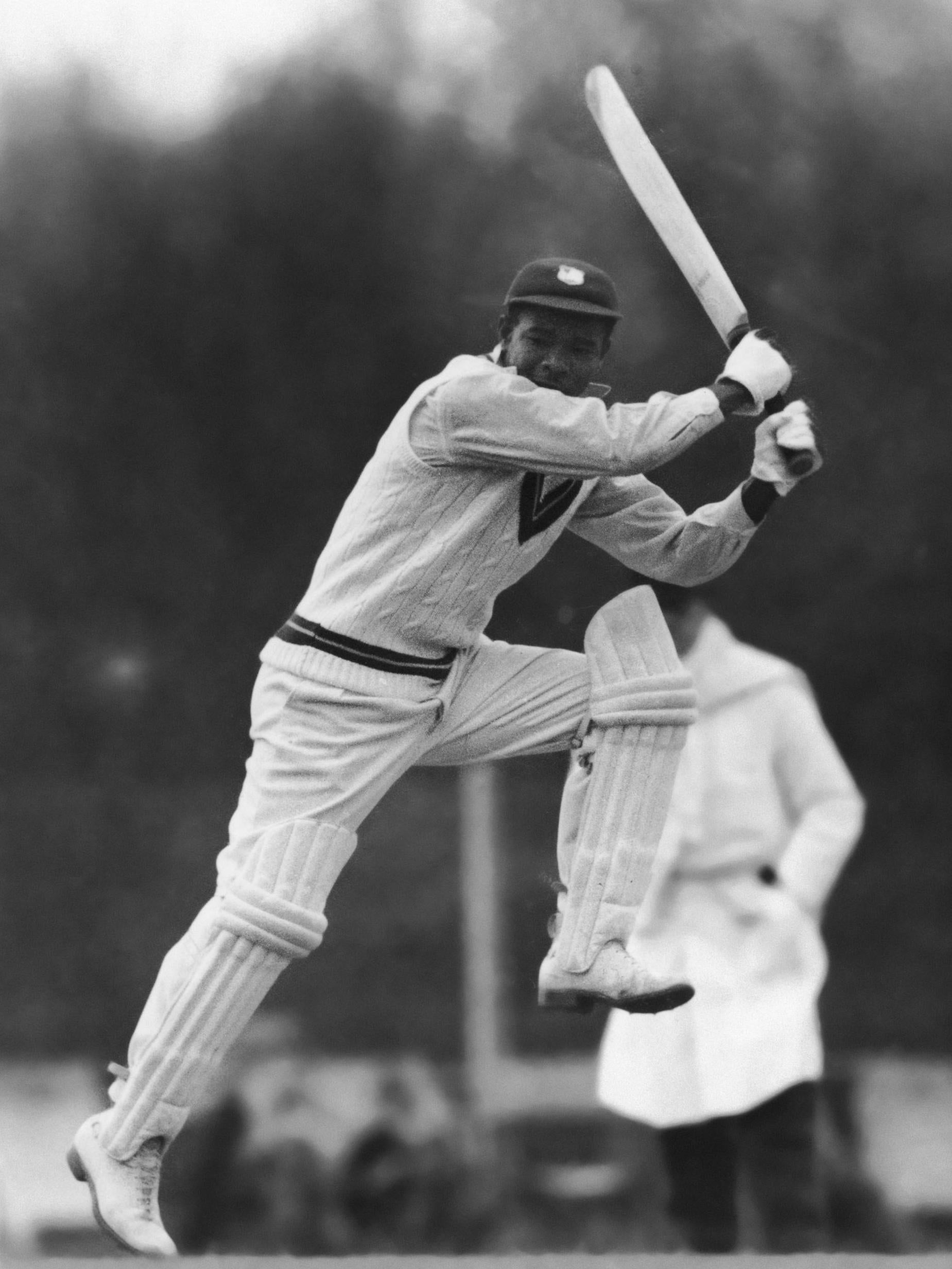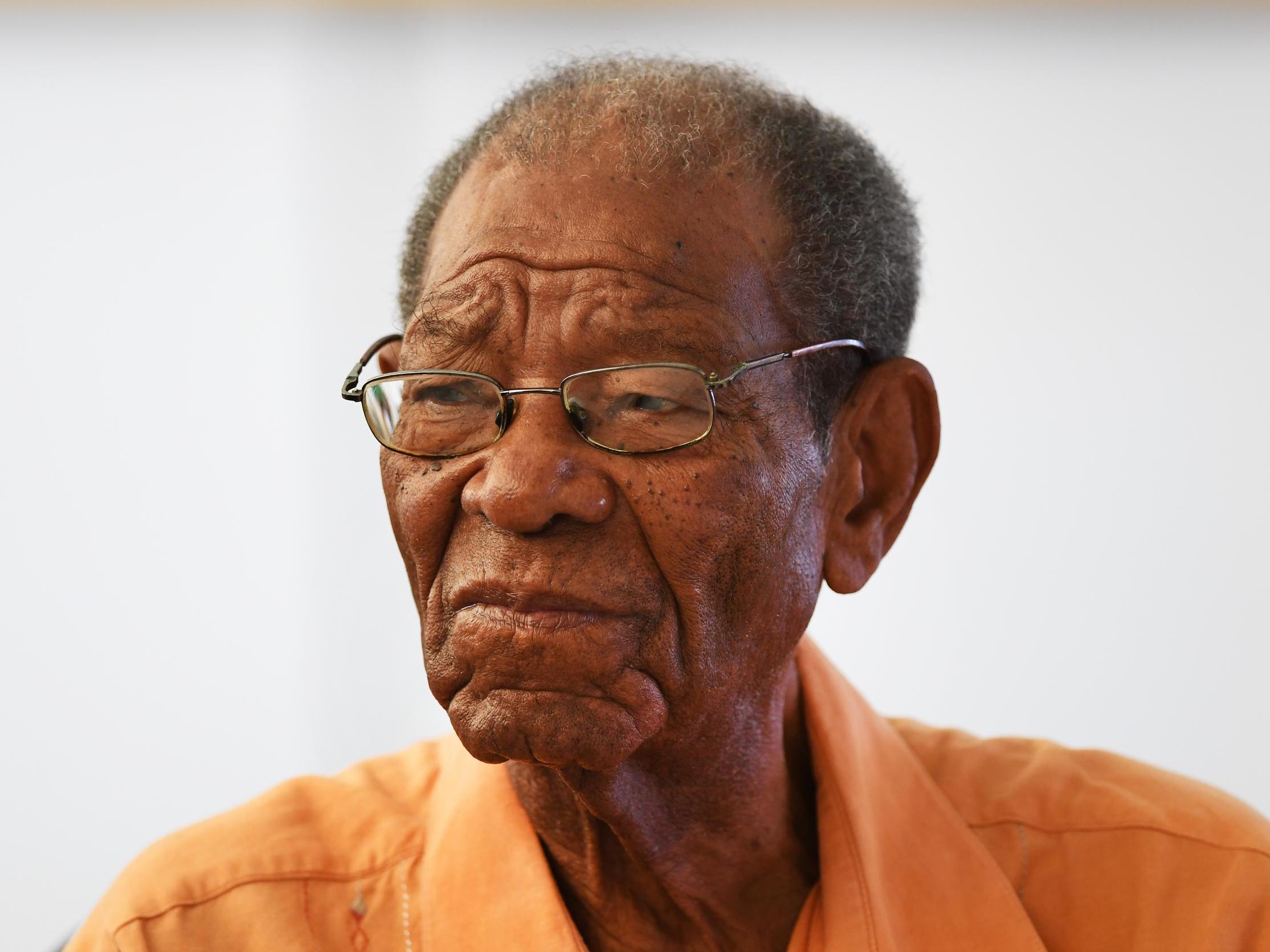Sir Everton Weekes: Revered West Indian cricketer and last of the illustrious ‘Three Ws’
A largely uncoached right-handed batsman, Weekes was a neat and nimble back-foot player, a ruthless accumulator of runs who hooked and cut the fast bowlers with relish

Your support helps us to tell the story
From reproductive rights to climate change to Big Tech, The Independent is on the ground when the story is developing. Whether it's investigating the financials of Elon Musk's pro-Trump PAC or producing our latest documentary, 'The A Word', which shines a light on the American women fighting for reproductive rights, we know how important it is to parse out the facts from the messaging.
At such a critical moment in US history, we need reporters on the ground. Your donation allows us to keep sending journalists to speak to both sides of the story.
The Independent is trusted by Americans across the entire political spectrum. And unlike many other quality news outlets, we choose not to lock Americans out of our reporting and analysis with paywalls. We believe quality journalism should be available to everyone, paid for by those who can afford it.
Your support makes all the difference.Sir Everton Weekes, who has died at the age of 95, was one of the world’s greatest ever batsmen and a member of the illustrious “Three Ws”. Clyde Walcott, Weekes and Frank Worrell each represented at its most dynamic that immediate post-war generation of Barbadian cricketers whose efforts helped propel the West Indies to the forefront of world cricket.
Such was Weekes’s batting ability that he regularly found himself likened to the great Australian batsman Sir Donald Bradman. His career included five consecutive Test centuries and after leaving cricket he found himself on another international stage: representing Barbados at bridge.
A native of the Saint Michael district of Bridgetown in Barbados, Everton de Courcy Weekes was educated at St Leonard’s School. After serving with the Barbados Battalion of the Caribbean Regiment during the Second World War, he made his first class debut for Barbados against Trinidad and Tobago at Port of Spain in February 1945. A largely uncoached right-handed batsman, generally featuring in the middle order, Weekes was a small, neat and nimble back-foot player, a ruthless accumulator of runs who hooked and cut the fast bowlers with relish. Though highly disciplined, he always batted with the air of a man keeping an appointment with a century and must not be late. Whether patrolling in the covers or as a close catcher, he was also an outstandingly agile fielder.
Alongside Walcott, Weekes made his Test match debut for the West Indies against England at the Kensington Oval in Barbados in January 1948. Struggling to assert himself in the series he was dropped for the fourth and final encounter at Sabina Park, Kingston. However, with George Headley forced to withdraw, Weekes won a reprieve. Initially proving an unpopular selection for the home crowd, all that changed following a matchless 141 that gave his side a landmark victory. Chosen for the succeeding tour of India, he then knocked off four Test centuries in succession – 128 in Delhi, 194 in Bombay, and 162 and 101 both at Calcutta. It would have been six in all had he not been harshly adjudged run out for 90 at Madras. He ended the tour with a remarkable average of 111.28.
Touring England in 1950, Weekes again topped the West Indian batting with 2,310 runs. Failing by only 10 runs to equal George Headley’s run aggregate of the 1933 tour, Weekes instead created a new record with a batting average of 79.65. Five of his seven hundreds were double tons, only Bradman with six in 1930 had made more in a summer. They included a ferocious 279 made against Nottinghamshire at Trent Bridge and a career best 304 not out, accumulated against Cambridge University at Fenner’s. In the Test arena, he registered 338 runs, including 129 made in a fourth-wicket partnership of 283 with Worrell, also at Trent Bridge. Snaffling five catches in the fourth Test at the Oval helped the visitors claim the rubber 3-1, and a historic first series win in this country.
Weekes had first experienced English conditions 12 months earlier when playing professionally for Bacup in the Lancashire League. He announced his arrival that season with a record 195 not out against Enfield. Having struggled initially to cope with the cold weather, he quickly became a revered and popular figure throughout the town. In his seven seasons in Lancashire, he scored 9,069 runs at an average of 91.61, including 32 centuries. Topping 1,000 runs each year, his most prolific was 1951 when he totalled 1,518. He also chipped in as a more than useful bowler. Having won the Worsley Cup in 1956, two years later, in his last season at the club, they captured the league title.

Following their success in England, the West Indies were full of confidence for their trip to Australia in 1951-52. However, in the face of particularly hostile fast bowling from Ray Lindwall and Keith Miller, the team mustered only two centuries throughout the whole series. Save for a fighting 70 in the first Test at Brisbane, having torn hamstring muscles in both legs during the opening first class fixture, Weekes never moved freely throughout the tour. Happily, his form recovered against the visiting Indian team in 1953. In the first Test at Port of Spain he powered his way to 207, sharing in a double-century stand with Bruce Pairaudeau. He plundered another century at Kingston to help himself to a three-figure average for the series.
In what turned out to be a most controversial home series versus England in 1953-54, Weekes compiled a quickfire match-winning 90 not out in the first Test. Absent during the second, he fell six short of a century in the third encounter at Georgetown. At Port of Spain, sharing a new record third-wicket partnership of 338 with Worrell, Weekes put the English attack to the sword with a superb 206. Twelve months later, the visit of the Australians to the Caribbean gave him the chance to try to erase the painful memories of that earlier visit down under. He certainly fared better, scoring 139 and 87 in the second Test at Port of Spain, before sharing in two important third-wicket stands with Walcott. Unusually, the third Test at Georgetown brought him a rare duck.
In January 1956, the West Indies made their first full-scale tour of New Zealand. For Weekes, treating the bowling as he pleased, the trip was a rousing personal triumph. His total of 940 runs included six centuries – four of them in succession – all coming from just eight first class matches. In the first three Test matches he compiled centuries and his side won the series 3-1.

By contrast, the visit to England in the summer of 1957, his fifth major tour, proved a complete anti-climax. Both Weekes and the team fared badly, drawing two and losing three of the five Test matches. Badly affected throughout with sinusitis, muscle spasms and double vision, his best knock by far was a gutsy 90, made despite a broken finger, on an unusually spiteful wicket at Lord’s.
Happily, he returned fighting fit for the eagerly anticipated inaugural visit of the Pakistani tourists in 1958. In what would be his final international series, he was back to his imperious best, crashing a typical barnstorming 197 during the first Test in Barbados.
Winning a total of 48 Test caps in the 10 years between 1948 and 1958, in all he scored 4,455 runs at an average of 58.61, including 15 centuries. An occasional leg spin bowler, his one wicket at this level was the Australian opener Arthur Morris in 1955. Playing for Barbados until 1964, he captained the side from 1960 onwards. In first class cricket he compiled 12,010 runs at an average of 55.34. During 1965, aged 40, he led a Barbados Colts XI against the touring Australians, retiring undefeated at tea on 105.
Weekes stayed in the game as a West Indies board member, coach, selector, team manager and media pundit, before becoming an ICC match referee. He would successfully move to the much more intimate green baize of the bridge table, competing in a number of international championships. He was awarded an OBE in 1960, then Barbados’s Gold Crown of Merit, and in 1995 he was knighted.
Sir Everton Weekes, cricketer, born 26 February 1925, died 1 July 2020
Join our commenting forum
Join thought-provoking conversations, follow other Independent readers and see their replies
Comments